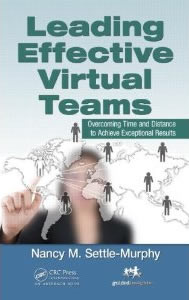A client who’s raved about my work for years has unceremoniously stopped answering my emails. A prospective client who has promised to move forward with my proposal has suddenly cut off all communication. A colleague I’ve known for years seems to have fallen off the face of the earth.
Yup, I’ve been ghosted, and I’ll bet you have, too. The term is thought to have originated by those whose prospective online dates have suddenly vanished into the ether. But for our purposes, we’ll define ghosting as the practice of ignoring or severing a business relationship by suddenly withdrawing from all communication, usually with no explanation or apology. (For example, deleting an unsolicited email from a stranger isn’t ghosting, but failing to respond to repeated entreaties from a colleague, client or long-time vendor is.)
Ghosting behavior seems to be more prevalent, and for some, has become par for the course. When asked whether she’d ever been ghosted, one client replied: “People generally seem to have such terrible manners, particularly on the internet, that this concept of ghosting would seem to be just one more thing.” I think she’s onto something: With more of our communications mediated by some kind of technology, it’s easier to drop out of sight without having to observe how the other person feels when they’re left dangling.
This led me to wonder: What makes someone decide that it’s okay to simply cease all communications, especially after a long-standing relationship? What message are we getting when we’re on the receiving end, and what recourse does the “ghostee” have, if anything? In this edition, I explore the dynamics of ghosting and offer some tips to both “ghosters” and “ghostees.” One thing we can probably all agree on: No one likes to be on the receiving end of ghosting, and those who acknowledge our own ghosting tendencies are probably not especially proud of our behavior.
- Ghosting is easy. It’s certainly easier than explaining why a relationship has outlived its usefulness for us, for whatever reason. Rather than facing up to what can be a difficult conversation, some people find simply deleting messages or voicemails to be a less messy alternative than having to deal with disappointment and hurt feelings. If we don’t see the impact, it’s not real to us. (If a tree falls in the forest and there’s no one there to hear….)
- Empathy seems harder to come by. When most communications take place from a distance, whether via phone, text, Skype, email, etc., it can be harder to cultivate empathy for others, making it easier to shut the door on a relationship that no longer serves us. My friend Sheila, who runs a local fitness center, shared this experience: “I recently had an employee disappear. He was on vacation and was scheduled to return while I was on vacation. We corresponded via text to confirm he would be coming in to work on a Sunday morning, which was 3-4 days away. He contacted me on the Saturday before his shift to say he wasn’t feeling well, but would ‘definitely be there on Monday morning.’ He didn’t show up for work on Monday, and we haven’t heard from him since. I have tried to reach him multiple times via phone and text, with no response. At this point, I understand he doesn’t want his position, but we’ve been worried about his health and safety!” Clearly, this employee was not considering the impact on Sheila, the rest of the staff, his clients, or his professional reputation when he chose to simply disappear, rather than admit he no longer wanted the job.
- Precedence has been set. If you’ve ever interviewed for a job or assignment that you’ve been led to believe you’d be perfect for, and then never heard back from the HR rep or the hiring manager, you’ve been ghosted. If you’re a hiring manager who extends an offer to a prospective employee, and then never gets a response back from the candidate, you, too, have been ghosted. Such behavior has become so commonplace that it’s become expected and even somehow acceptable, perhaps because so many people have come to view interactions as transactions to be processed as efficiently as possible, rather than relationships to be cultivated
- Beware the serial ghosters. In her Forbes article The Pitfalls of Serial Ghosting, (see links below) author Aliza Licht describes a typical serial ghoster as the person in your professional circle who repeatedly asks for time on your calendar, spurring several back-and-forth emails to find a good time. Then when you email to confirm for the next day, you hear….nothing. And on the appointed day/time, they’re still nowhere to be found. A few hours or even a couple of days later, you may get a half-hearted apology about how “crazy busy” they’ve been, asking to reschedule. Against your better judgement, you agree, and then hear nothing back, until a few months later when they reach out yet again, with no apparent recollection about their lapses last time. Resist the temptation to ghost them in return, and instead, be the better person and call or email to let them know why you’re choosing to pass up the opportunity to schedule time with them this time. This could be a teachable moment.
- Acknowledge your ghosting behavior. Sure, we all get super busy, and some of us don’t do a great job of managing our time, our inbox or our priorities. But rather than feeling guilty about ignoring yet another email from someone who clearly values your relationship, take a few seconds to respond, explaining the reasons for your silent treatment. If you’ve been juggling a million things, say so, and let them know when you expect to come up again for air. If you’re not intending to go further with a job candidate or vendor, do them a kindness and let them know, gently and unambiguously. Advice from Licht: “If you’ve ghosted on someone… reach out and acknowledge that you dropped the ball, and apologize – don’t make excuses and don’t expect anything in return. We’ve all gone frozen at one time or another, for reasons that make sense and sometimes don’t make sense. This is a relatively small world, and in my opinion, a straight apology will go a long way toward mending the damage.”
- Ghosting can come back to haunt you. In their article Business Ghosting Can Come Back to Haunt You and Your Career (see links below), the Integreship Group points out that whether it’s intentional or not, ghosting on someone leaves a negative perception on the part of the person who’s not hearing back from you. And that perception can circle back on you in your career as people’s paths crisscross over the years. A peer you ghosted 10 years ago could be your boss in the future. Or a vendor you ghosted a few years ago could be a decision-maker you’re trying to win over today. In other words, the bridges you burn today by ghosting on someone may come back to haunt you down the road. It’s a small world, made ever smaller by thousands of connections we create almost effortlessly, thanks in part to the proliferation of our digital footprints.
- Decide how (or whether) to pursue those who ghost on you. This is easier said than done, since you have no idea why this person has cut you off, or indeed if their lack of communication is intentional. If they intended to sever all communications with you, then chances are, your next email or call may go unanswered, too. If your usual mode of communication has been email, try a different mode, like phone or a private LinkedIn message. (I tend to avoid texting in these situations, as it can feel somewhat stalkerish.) I’ve resorted to email subject lines that call for some kind of answer, like: Should I put this on the back burner for now? Or, Are we okay? And sometimes we just need to let time pass, or simply walk away, not a very satisfying conclusion to a relationship that took time to build, but sometimes it’s our only option.
Few of us enjoy having those difficult conversations where we must let the other person know that it’s time to end the relationship, for whatever reason. Even though it may seem easier to simply cut someone off, you’ll feel much better about yourself if you summon up the courage, pick up the phone, and express your intentions, along with your rationale, making sure to acknowledge the impact the loss of relationship will have on the other person. It can take far less time than an email or a text, with much better outcomes for both of you.
Links
- What is Employee Ghosting? – How Companies created Their Own Worst Nightmare – Inc. article
- The Pitfalls of Workplace Ghosting – Forbes article
- Getting Ghosted by Clients – Psychotherapy Networker article
- Ghosting in the Workplace – PeopleScout.com article
- Business Ghosting Comes Back to Haunt Careers – Integreship.com article
- The Perils of Professional Ghosting – Collierlegal.com article




